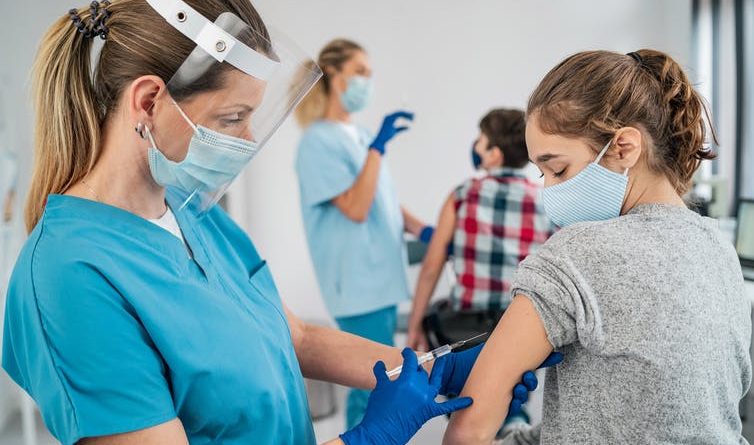Australia approves Covid -19 vaccines for children aged 5 to 11.
From early next year, children as young as five will likely begin being vaccinated against COVID-19.
Pfizer’s COVID-19 vaccine has been provisionally approved by Australia’s medical regulator and only has a few small hurdles left before it is given the all-clear.
It’s the latest significant expansion in the national vaccine rollout and may come as a relief to plenty of parents.
If everything goes to plan, kids will be able to receive their first dose ahead of the 2022 school year.
We’ve already seen the vaccine rollout expanded to include 12 to 16-year-olds, but this expansion is a little different.
Here is what you need to know about COVID-19 vaccines for younger kids.
Will all kids be eligible?
The Therapeutic Goods Administration has provisionally approved Pfizer’s vaccine for all children aged five to 11 years old.
It is the most significant step in the approval process, with the TGA saying the vaccine is both safe for young children and effective in protecting against COVID-19.
But vaccine expert advisory group ATAGI still gets to have its say. It will advise the government on exactly how the vaccine is rolled out — for example, whether it is offered to all kids at once, or just to the immunocompromised at first.
Asked about this on Sunday, Health Minister Greg Hunt said it is up to ATAGI — but he expects all children will be offered the vaccine at the same time.
“The early advice is they’ve been working in parallel with the TGA throughout and there are no red flags, and so our expectation is that they are set to approve following the TGA,” he said.
If you are wondering what “provisional” approval means, basically it is approved for use for the next two years.
Pfizer is also required to continue supplying data to the TGA on things like efficacy and safety.
When will the rollout begin?
January 10 is the date that is pencilled in for now.
That provides just over a month for the final approval hurdles to be overcome, and for doses to be shipped in and tested before the rollout begins.
And the government is hoping for a fairly quick rollout too.
It is pointing to the quick take-up of the vaccine in 12 to 15 year-olds as evidence, with more than 76 per cent of that age group having received their first dose.
Prime Minister Scott Morrison said he wanted the vaccination rollout for children underway well in time for the new school year.
“This information today has not come as a surprise, we’ve been working towards that approval,” Mr Morrison said.
“Then [we will be] getting on with giving parents the choice to have their children vaccinated before they head back to school.”
What sort of vaccine are they getting?
It is exactly the same Pfizer vaccine that has been rolled out to millions of Australian adults.
But it is a much smaller dose — precisely one-third the size of an adult dose, or 10 micrograms compared to 30 for adults.
Children’s doses will come in a different vial to adult doses, to ensure mistakes are not made. They will have an orange cap, compared to grey or purple caps on adult doses.
And while adults receive two doses three weeks apart, that might not be the case for children.
TGA boss Professor John Skerritt said ATAGI will be considering whether that interval between doses should be expanded out to two months.
“There’s been some emerging decisions in places like Canada that are suggesting that children should be done two months apart, or eight weeks apart, to get a stronger immune response,” he said.
Moderna’s vaccine is also being considered for younger children, with a decision from the TGA expected in the next few weeks.
What’s the rest of the world doing?
The United States is already well into its rollout of the Pfizer vaccine for five to 11-year-olds, with US health authorities recommending vaccines for that age group in early November.
It’s estimated about 10 per cent of eligible children have already had their first dose.
Canada is not far behind, approving Pfizer for five to 11-year-olds and starting its rollout last week.
In Europe, the European Medicines Agency is recommending Pfizer’s vaccine be given to children between five and 11 years of age.
Different European countries are progressing at different paces, with Italy approving the vaccine last week and France approving it for high-risk children and those living with vulnerable people.
Germany is expected to begin offering jabs to children aged five to 11 early next year, around the same time as Australia.
Israel, Oman and Saudi Arabia have all approved Pfizer for children as young as five.
Is it safe?
Determining whether the vaccine is both safe and effective for children is primarily the task of the Therapeutic Goods Administration.
Studies involving children aged between five and 11 were considered from the United States, Finland, Poland and Spain.
